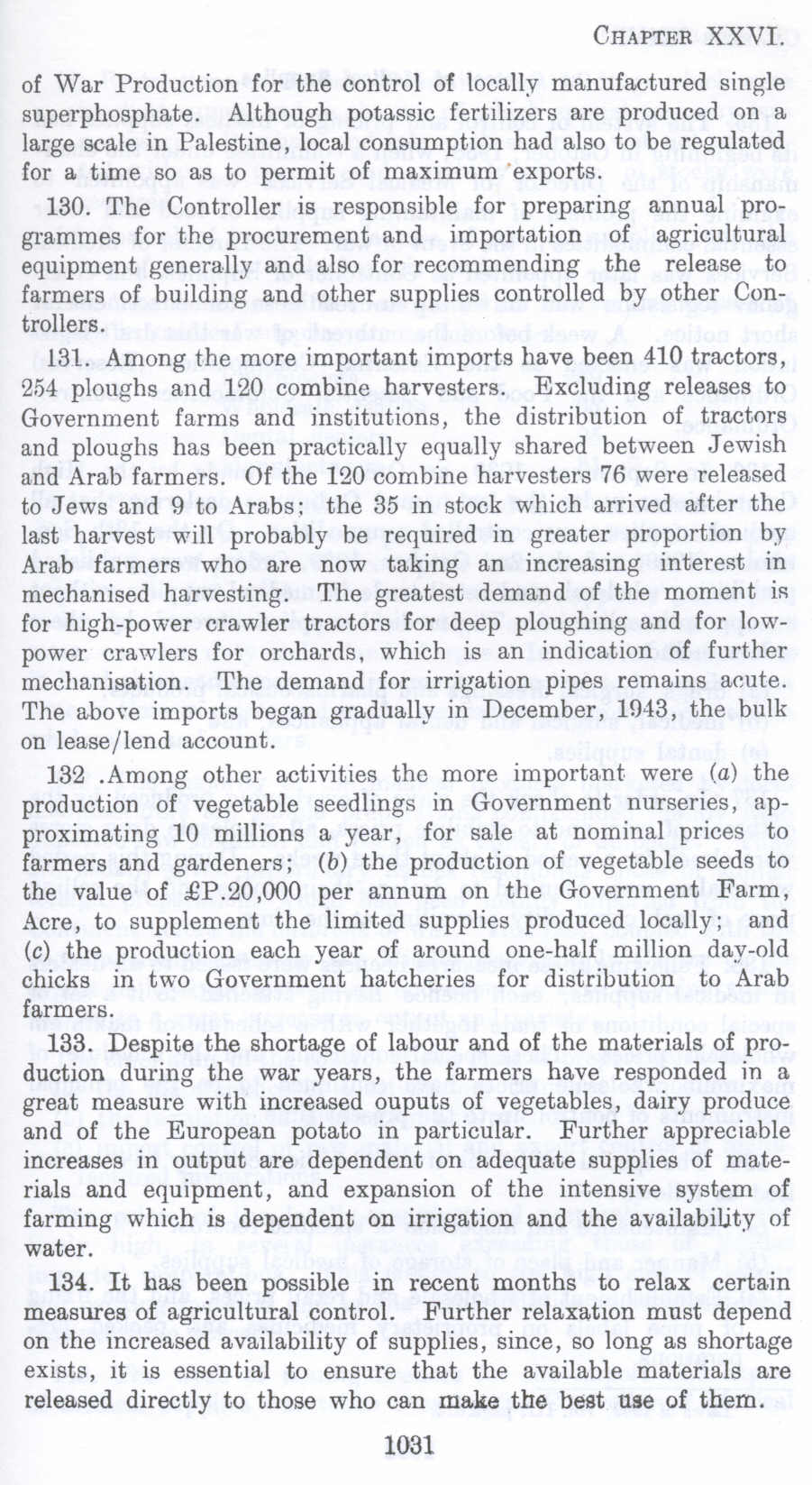| Prev | Next |  |
| Prev | Next |
| PalestineRemembered | About Us | Oral History | العربية | |
| Pictures | Zionist FAQs | Haavara | Maps | |
| Search |
| Camps |
| Districts |
| Acre |
| Baysan |
| Beersheba |
| Bethlehem |
| Gaza |
| Haifa |
| Hebron |
| Jaffa |
| Jericho |
| Jerusalem |
| Jinin |
| Nablus |
| Nazareth |
| Ramallah |
| al-Ramla |
| Safad |
| Tiberias |
| Tulkarm |
| Donate |
| Contact |
| Profile |
| Videos |
British Mandate: A Survey of Palestine: Volume II - Page 1031 |
Disclaimer
The above documents, article, interviews, movies, podcasts, or stories reflects solely the research and opinions of its authors. PalestineRemembered.com makes its best effort to validate its contents.


Post Your Comment
*It should be NOTED that your email address won't be shared, and all communications between members will be routed via the website's mail server.
of War Production for the control of locally manufactured single superphosphate. Although potassic fertilizers are produced on a large scale in Palestine, local consumption bad also to be regulated for a time so as to permit of maximum 'exports,
130. The Controller is responsible for preparing annual programmes for the procurement and importation of agricultural equipment generally and also for recommending the release to farmers of building and other supplies controlled by other Controllers.
131. Among the more important imports have been 410 tractors, 254 ploughs and 120 combine harvesters. Excluding releases to Government farms and institutions, the distribution of tractors and ploughs has been practically equally shared between Jewish and Arab farmers. Of the 120 combine harvesters 76 were released to Jews and 9 to Arabs: the 35 in stock which arrived after the last harvest will probably be required in greater proportion by Arab farmers who are now taking an increasing interest in mechanized harvesting. The greatest demand of the moment is for high-power crawler tractors for deep ploughing and for lowpower crawlers for orchards, which is an indication of further mechanisation. The demand for irrigation pipes remains acute. The above imports began gradually in December, l!l43, the bulk on lease/lend account.
132 .Among other activities the more important. were (a) the production of vegetable seedlings in Government nurseries, approximating 10 millions a year, for sale at nominal prices to farmers and gardeners; (b) the production of vegetable seeds to the value of £P.20,000 per annum on the Government Farm, Acre, to supplement the limited supplies produced locally; and (c) the production each year of around one-half million day-old chicks in two Government hatcheries for distribution to Arab farmers.
133. Despite the shortage of labour and of the materials of production during the war years, the farmers have responded in a great measure with increased outputs of vegetables, dairy produce and of the European potato in particular. Further appreciable increases in output are dependent on adequate supplies of materials and equipment, and expansion of the intensive system of farming which is dependent on irrigation and the availability of water.
134. It has been possible in recent months to relax certain measures of agricultural control. Further relaxation must depend on the increased availability of supplies, since, so long as shortage exists, it is essential to ensure that the available materials are released directly to those who can make the best use of them.
1031